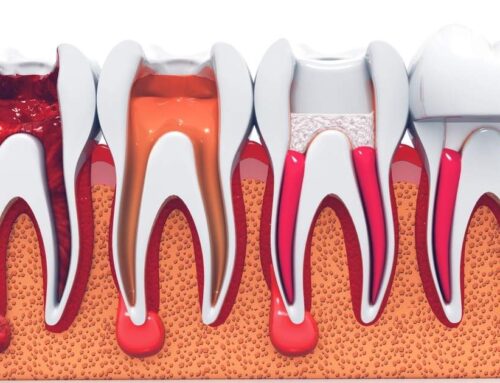Baby teeth are temporary. They grow into a toddler’s mouth with painful teething, only to become loose and fall out within ten years. The short lifespan of a baby tooth, though, does not accurately depict its importance. The following myths about baby teeth are commonly held yet very inaccurate.
1. You Don’t Need To Brush Or Floss Baby Teeth
Using a wet washcloth, parents should rub a baby’s gums each day to remove bacteria and prevent future cavities. When infants begin teething, cold spoons and wet cloths can also reduce pain and discomfort. Once a child is old enough to brush their own teeth, it is important that they are taught to brush twice each day with a small amount of fluoridated toothpaste.
2. Toddlers Don’t Need To Visit the Dentist
Many people believe that young children with less than half of their teeth, do not need to visit the dentist. However, according to the American Dental Association, children with at least one tooth by the age of one should begin annual dental care visits.
3. Toddlers and Young Children Don’t Get Cavities
Unfortunately, children of all ages can get cavities if their teeth are not properly cared for. Cavities in young children and toddlers can be painful and may easily lead to infection. In fact, toddlers and young children who have cavities, have been shown to be much more likely than others to develop cavities later in life. Filling bottles with milk and water and avoiding juice whenever possible, will reduce the amount of sugar that comes in contact with very young children’s teeth. The best ways to avoid all childhood cavities include minimizing sugary treats and brushing the teeth twice each day.
4. Baby Teeth Fall Out So They Aren’t Significant
While they only last for about the first decade of a child’s life, baby teeth position the gums and jaw to allow permanent teeth to grow properly and straight. This function goes so far as to assist with the proper spacing of teeth and support adult facial structure. Nutrition, such as efficient amounts of calcium and vitamin D, is also a factor of life-long dental health, beginning when a child is an infant.
Overall, baby teeth are in your child’s mouth for a very short period of time. Their importance, though, spans much of their lives, ranging from proper tooth spacing and the likelihood of cavities. To best guarantee a child has a life-long healthy mouth, schedule annual checkups, monitor daily brushing and be sure to feed them a diet low in sugar and high in fruits and vegetables!






